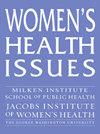Financial, Social, and Demographic Factors Associated With Obtaining an Abortion: A Longitudinal Study in Indiana in 2021–2022
IF 2.5
2区 医学
Q2 PUBLIC, ENVIRONMENTAL & OCCUPATIONAL HEALTH
引用次数: 0
Abstract
Objectives
We aimed to 1) characterize those who did and did not obtain an abortion and reasons why, and 2) evaluate the association between various facilitators, including financial and social support, and accessing an abortion.
Methods
Between June 2021 and April 2022, we recruited pregnant Indiana residents considering abortion through online posts, abortion funds, and abortion clinics. Respondents completed an online baseline survey and a follow-up survey 1 month later. Surveys collected information on sociodemographic characteristics, barriers and facilitators to abortion, and pregnancy outcome.
Results
Among 221 participants, 77% obtained an abortion within 1 month. Among online and abortion fund recruits, those who identified as Black or African American or Hispanic/Latinx and those without insurance were less likely to have had an abortion than were white and insured participants. Financial support from abortion funds and clinics and social support from peer networks were associated with higher odds of accessing abortion care 1 month later. Among participants still seeking abortion at 1 month or who had given birth, 64% reported that needing to gather money to pay for the abortion or travel expenses/lodging was a barrier to care. Among those who were no longer considering abortion at 1 month and planned to continue their pregnancy, 28% reported doing so because they did not have the money for an abortion.
Conclusions
In a restrictive state policy environment, receipt of financial and social support was associated with greater likelihood of obtaining abortion within a month of reporting considering or seeking it among a sample of pregnant people in Indiana.
与堕胎相关的经济、社会和人口因素:印第安纳州2021-2022年的一项纵向研究
目的:我们的目的是1)描述那些有和没有堕胎的人及其原因,2)评估各种促进因素之间的关系,包括经济和社会支持,以及获得堕胎。方法:在2021年6月至2022年4月期间,我们通过在线帖子、堕胎基金和堕胎诊所招募考虑堕胎的印第安纳州怀孕居民。受访者完成了在线基线调查和1个月后的随访调查。调查收集了有关社会人口特征、流产障碍和促进因素以及妊娠结局的信息。结果:221例患者中,77%在1个月内流产。在网上和堕胎基金的参与者中,那些被认定为黑人或非裔美国人或西班牙裔/拉丁裔以及没有保险的人比白人和有保险的参与者更不可能堕胎。来自堕胎基金和诊所的财政支持以及来自同伴网络的社会支持与1个月后获得堕胎护理的几率较高相关。在1个月后仍在寻求堕胎或已经分娩的参与者中,64%的人报告说需要筹集资金支付堕胎或旅行费用/住宿是护理的障碍。在那些在1个月时不再考虑堕胎并计划继续怀孕的人中,28%的人报告说他们这样做是因为他们没有钱堕胎。结论:在限制性的州政策环境中,在印第安纳州的孕妇样本中,接受经济和社会支持与在报告考虑或寻求堕胎的一个月内获得堕胎的可能性较大有关。
本文章由计算机程序翻译,如有差异,请以英文原文为准。
求助全文
约1分钟内获得全文
求助全文
来源期刊

Womens Health Issues
Multiple-
CiteScore
4.50
自引率
6.20%
发文量
97
审稿时长
32 days
期刊介绍:
Women"s Health Issues (WHI) is a peer-reviewed, bimonthly, multidisciplinary journal that publishes research and review manuscripts related to women"s health care and policy. As the official journal of the Jacobs Institute of Women"s Health, it is dedicated to improving the health and health care of all women throughout the lifespan and in diverse communities. The journal seeks to inform health services researchers, health care and public health professionals, social scientists, policymakers, and others concerned with women"s health.
 求助内容:
求助内容: 应助结果提醒方式:
应助结果提醒方式:


